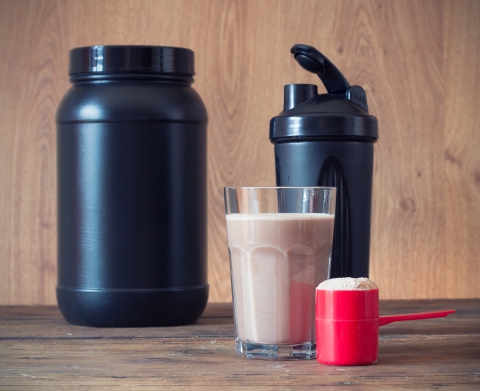 Weight reduction surgery helps to put you on your path to a healthier lifestyle, but you can still tip into the realm of unhealthy if you don’t follow your doctor’s or nutritionist’s orders. Watching what you put into your body is very important because your blood pressure and cholesterol can dip toward unhealthy. Especially after weight reduction surgery, you should still be watching what you eat. By stepping up and undergoing bariatric surgery, you were ready to change your life around. Don’t take a step backward by letting yourself go again. Understand your body and how eating fatty foods and practicing unhealthy habits can contribute to poor overall health, such as high blood pressure and cholesterol.
Weight reduction surgery helps to put you on your path to a healthier lifestyle, but you can still tip into the realm of unhealthy if you don’t follow your doctor’s or nutritionist’s orders. Watching what you put into your body is very important because your blood pressure and cholesterol can dip toward unhealthy. Especially after weight reduction surgery, you should still be watching what you eat. By stepping up and undergoing bariatric surgery, you were ready to change your life around. Don’t take a step backward by letting yourself go again. Understand your body and how eating fatty foods and practicing unhealthy habits can contribute to poor overall health, such as high blood pressure and cholesterol.
Understanding Your Body
Why do you need to think about high blood pressure or cholesterol if you’ve gone through bariatric surgery? No matter what stage of health you are in, you should consider the negative effect of what practicing unhealthy habits can have on your body.
Your Blood Pressure
What does it mean when you have high blood pressure? It means that your heart is working at an above normal level, and due to working harder it leaves your heart and arteries open to injury.
What does your blood pressure do? By keeping your blood pressure normal, you are able to reduce your chances of heart attack and stroke or developing heart and kidney failure. Having normal blood pressure will also provide your body with blood tissue rich in oxygen.
Your Cholesterol
There are two different types of cholesterol. The first kind, the so called “bad” kind, is called LDL and is the kind that leads to heart disease, stroke, and heart attacks. The second kind is HDL, and that’s the so called “good” cholesterol. HDL lowers your chances of heart disease, stroke, and heart attack. So, how are these differentiated? Making healthy decisions toward eating and drinking is what differentiates good from bad cholesterol. For instance, if you have a diet filled with red meat, sugars, and white flour, you’re likely to have higher cholesterol. If you have a diet filled with leafy greens, salmon, and you moderate your drinking, you’re likely to have a healthy cholesterol.
If you have high blood pressure or cholesterol, see a doctor to see how to fix it. If you are interested in bariatric surgery and want to learn more about controlling your weight, contact Weight Zen.

 You are going to need to start exercising if you are going to undergo bariatric surgery or if you have already completed it. When you start on your road to weight reduction surgery you need to lose some weight before you can be accepted for the surgery. On the other hand, you also need to start exercising once you have completed your surgery. Going through bariatric surgery is a long process, one that might seem daunting, but you can do it. At Weight Zen, located in New York, we can provide more information about weight control and bariatric surgery.
You are going to need to start exercising if you are going to undergo bariatric surgery or if you have already completed it. When you start on your road to weight reduction surgery you need to lose some weight before you can be accepted for the surgery. On the other hand, you also need to start exercising once you have completed your surgery. Going through bariatric surgery is a long process, one that might seem daunting, but you can do it. At Weight Zen, located in New York, we can provide more information about weight control and bariatric surgery. It’s easy to gain weight. There are so many delicious foods that contribute to weight gain, such as sweets, sugary drinks, and complex carbohydrates. When you only have so much time in a day, it can be difficult to fit in exercise. Losing weight can be very difficult when you don’t have the time to eat correctly or exercise.
It’s easy to gain weight. There are so many delicious foods that contribute to weight gain, such as sweets, sugary drinks, and complex carbohydrates. When you only have so much time in a day, it can be difficult to fit in exercise. Losing weight can be very difficult when you don’t have the time to eat correctly or exercise. Reproductive
Reproductive
 Once you have weight reduction surgery, you need to consume a certain amount of nutrients to stay on the path of being healthy. One of the nutrients that need to be consumed daily is protein. Now that you’ve gone through bariatric surgery, it’s important to focus on a new dietary plan. It can be hard to adjust, but your nutritionist and bariatric surgeon probably told you why there are dietary restrictions and what foods need to be consumed. To help you stay on track, there are many foods that you can try, but there are also protein powder shakes to give you the nutrients you need in smaller portions. Portion control can be hard to maintain, but by exploring the wonderful world of bariatric protein powder you can hit your nutrient goals everyday, stay full, and continue on your path of being healthy and losing weight.
Once you have weight reduction surgery, you need to consume a certain amount of nutrients to stay on the path of being healthy. One of the nutrients that need to be consumed daily is protein. Now that you’ve gone through bariatric surgery, it’s important to focus on a new dietary plan. It can be hard to adjust, but your nutritionist and bariatric surgeon probably told you why there are dietary restrictions and what foods need to be consumed. To help you stay on track, there are many foods that you can try, but there are also protein powder shakes to give you the nutrients you need in smaller portions. Portion control can be hard to maintain, but by exploring the wonderful world of bariatric protein powder you can hit your nutrient goals everyday, stay full, and continue on your path of being healthy and losing weight. Why Use Bariatric Protein Powder?
Why Use Bariatric Protein Powder?
 Skyr
Skyr Here at Weight Zen, Dr. Rosen has helped hundreds of patients who suffer from obesity and weight control issues achieve a healthier life. We receive many calls from potential weight loss surgery candidates who are simply unsure about whether they are a candidate for bariatric surgery in New York. Today, we’re going to take a look at some of the basic standards of the ideal bariatric surgery candidate.
Here at Weight Zen, Dr. Rosen has helped hundreds of patients who suffer from obesity and weight control issues achieve a healthier life. We receive many calls from potential weight loss surgery candidates who are simply unsure about whether they are a candidate for bariatric surgery in New York. Today, we’re going to take a look at some of the basic standards of the ideal bariatric surgery candidate.
